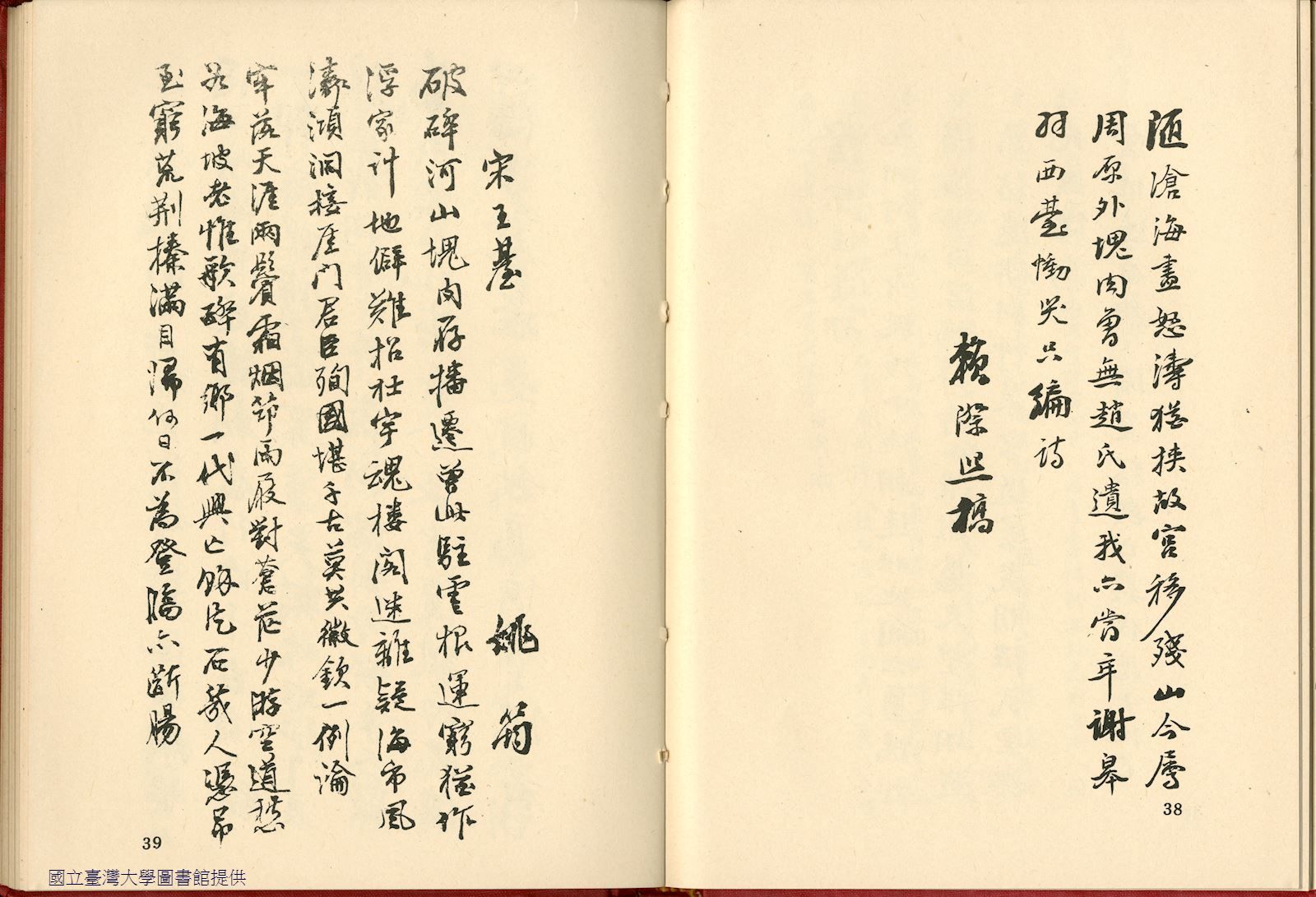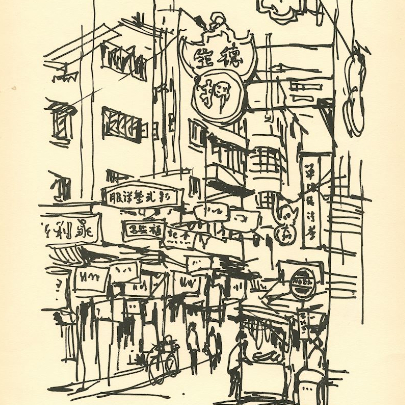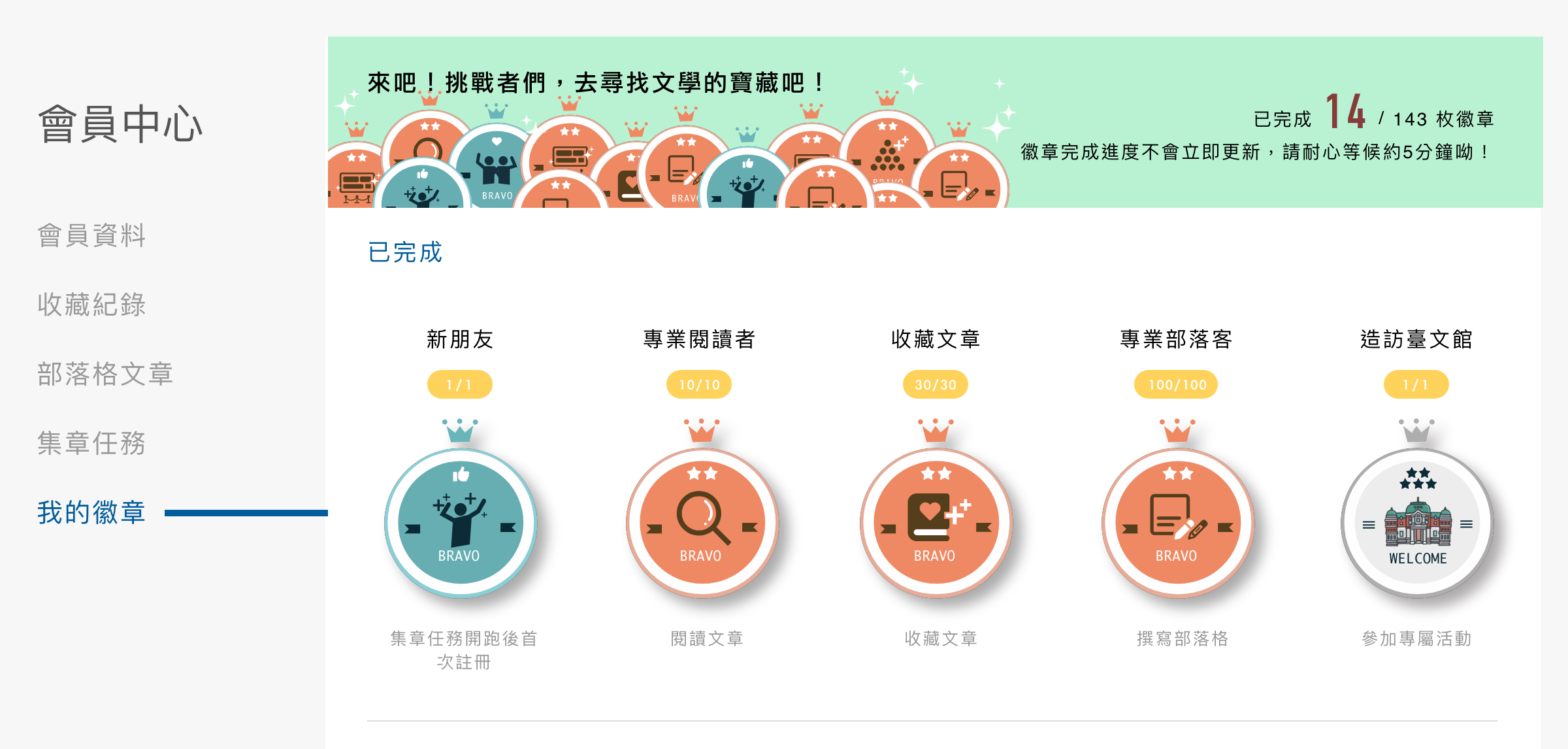Images of Hong Kong literature / historical events|Island in the Twilight|Important moments of Hong Kong literature|Stories of Hong Kong Literature
The social and political convulsions that ravaged China from the late 19th century onward gave Hong Kong a regular influx of refugees and émigrés, kept the colony in a chronic state of unease, and regularly infused the sociopolitical landscape with new threads of cultural inspiration and conflict.
How these new residents saw Hong Kong was invariably colored by their individual experiences. Each new arrival from the north, whether settling down in the colony or leaving to pursue a life elsewhere, indelibly influenced Hong Kong’s social landscape. They all became part of the jarringly brilliant and bleak milieu that has inspired generations of local authors.
Images of Hong Kong literature / historical events
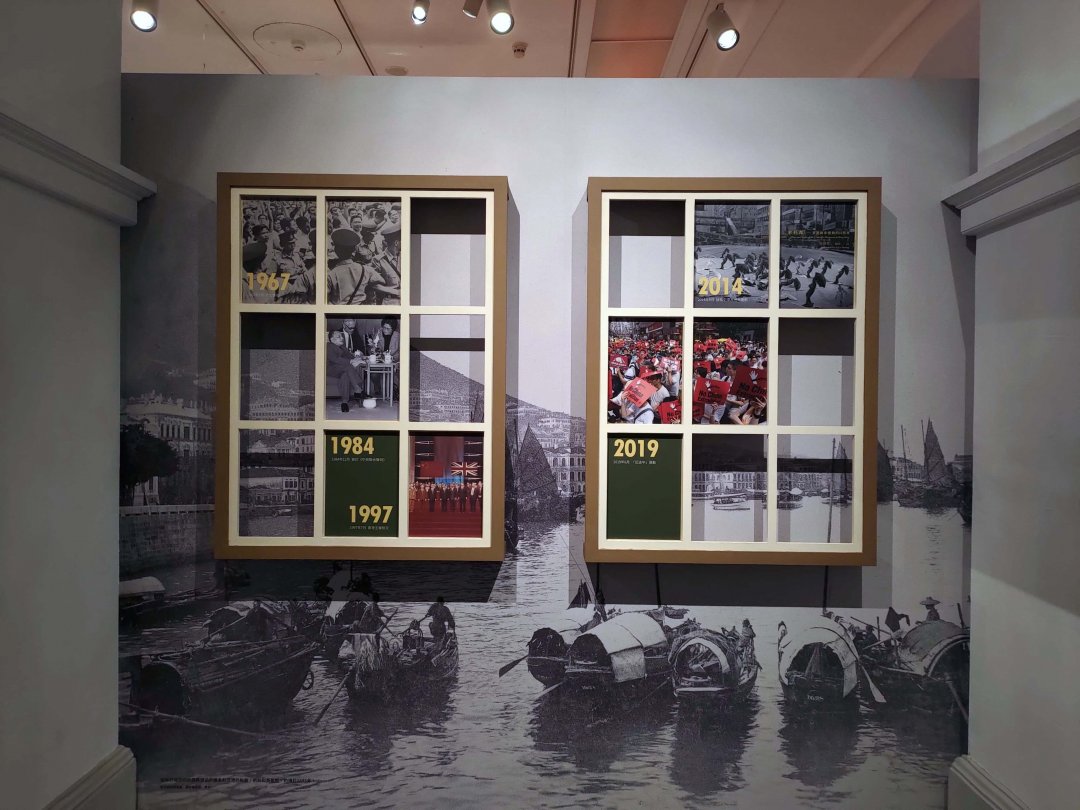
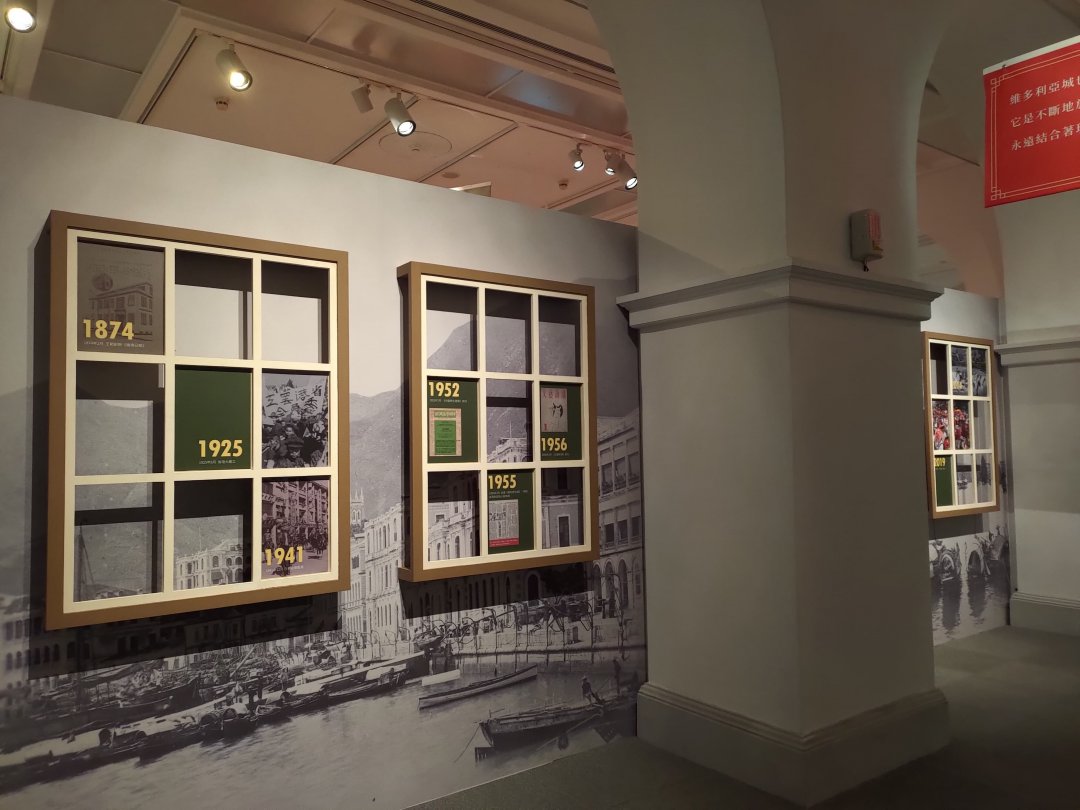
1874 Wang Tao founded the "Universal Circulating Herald."
1925 Canton–Hong Kong strike
December 25, 1941 Japanese occupation of Hong Kong
July 25, 1952 "The Chinese Student Weekly" was first published.
February 8, 1955 Jin Yong's The Book and the Sword started the craze for new wuxia novels in Hong Kong.
March 1956 The first issue of "New Tides of Literature and Arts"
1967 Hong Kong 1967 leftist riots
December 19, 1984 Sino-British Joint Declaration was signed.
July 1, 1997 Hong Kong's return
2014 Occupy Central and Umbrella Movement
2019 Anti-Extradition Law Amendment Bill Movement
Island in the Twilight
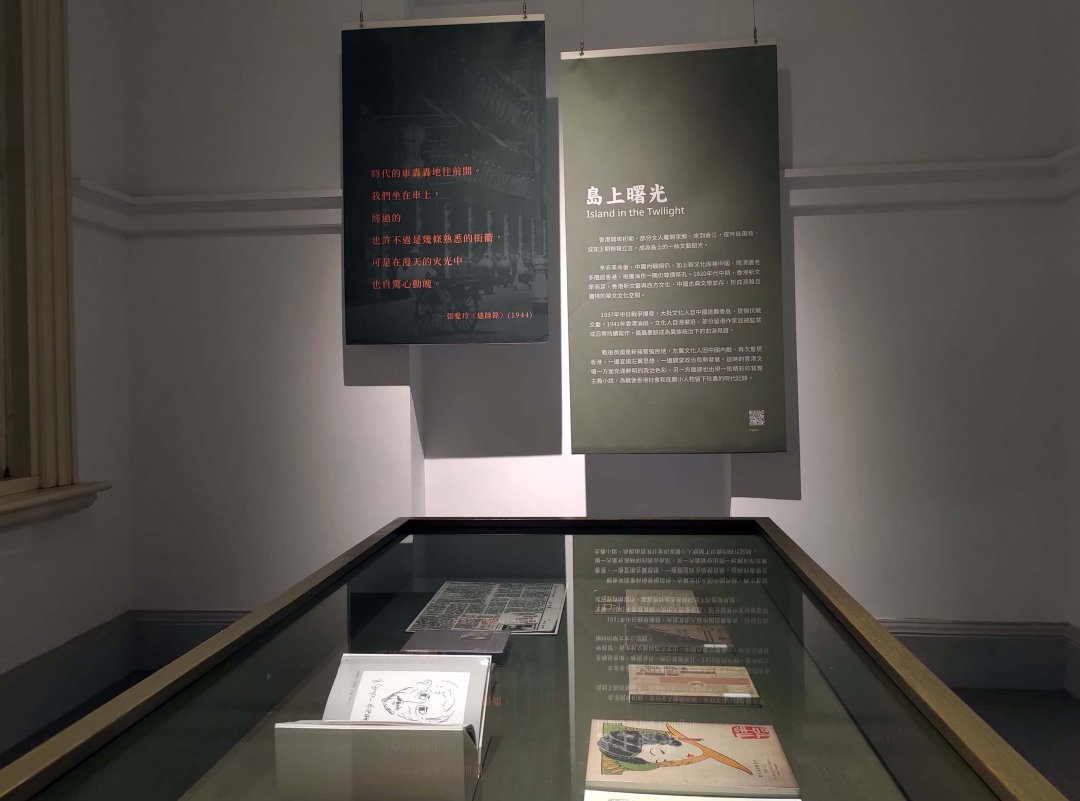
The car of the era rushes forward. We sat in the car, and though we may be just passing by a few familiar streets, the flames in the sky are frightening. ── Eileen Chang From the Ashes (1944)
Hong Kong welcomed a trickle of well-educated émigrés from China during the 19th century. Some created poetry and prose about life in the colony while others, like Wang Tao, founded newspapers and publishing houses, igniting the first dazzling sparks of the literary arts in Hong Kong. China descended into widespread civil strife and unrest following the 1911 Xinhai Revolution and collapse of the last imperial dynasty. As the “New Culture Movement” swept the country, Hong Kong became a natural refuge for Chinese who were unwilling to abandon traditional ways, making the colony the one corner of China where Confucian values remained pre-eminent. When Hong Kong’s new literature movement gained traction in the mid-1920s, it coexisted with, and was influenced by, contemporary Western and classical Chinese literary circles in the colony. This gave early 20th-century Hong Kong a uniquely variegated landscape in terms of Chinese literature and culture.
The outbreak of the Second Sino-Japanese War in 1937 sparked another exodus of refugees toward Hong Kong and inspired a new genre of anti-Japanese / patriotic literature. When Hong Kong fell to the Japanese in 1941, many of the colony’s cultural elite fled. Of those who stayed, some were imprisoned while others continued writing despite the mortal risks involved. The literary output of this period testifies to the hardships of a people living under oppressive, alien rule. Hong Kong was restored to British rule after Japan’s surrender to the Allies in 1945. The renewed civil war in China once again sent left-wing intellectuals to the colony, where they could publish their ideas freely and watch from the sidelines China’s political fate unfold. Postwar Hong Kong’s literary community was thus vitalized by a fresh political vibrancy as well as by a new generation of realist authors. These developments enriched Hong Kong society and turned a welcome spotlight on Hong Kong’s rank and file.
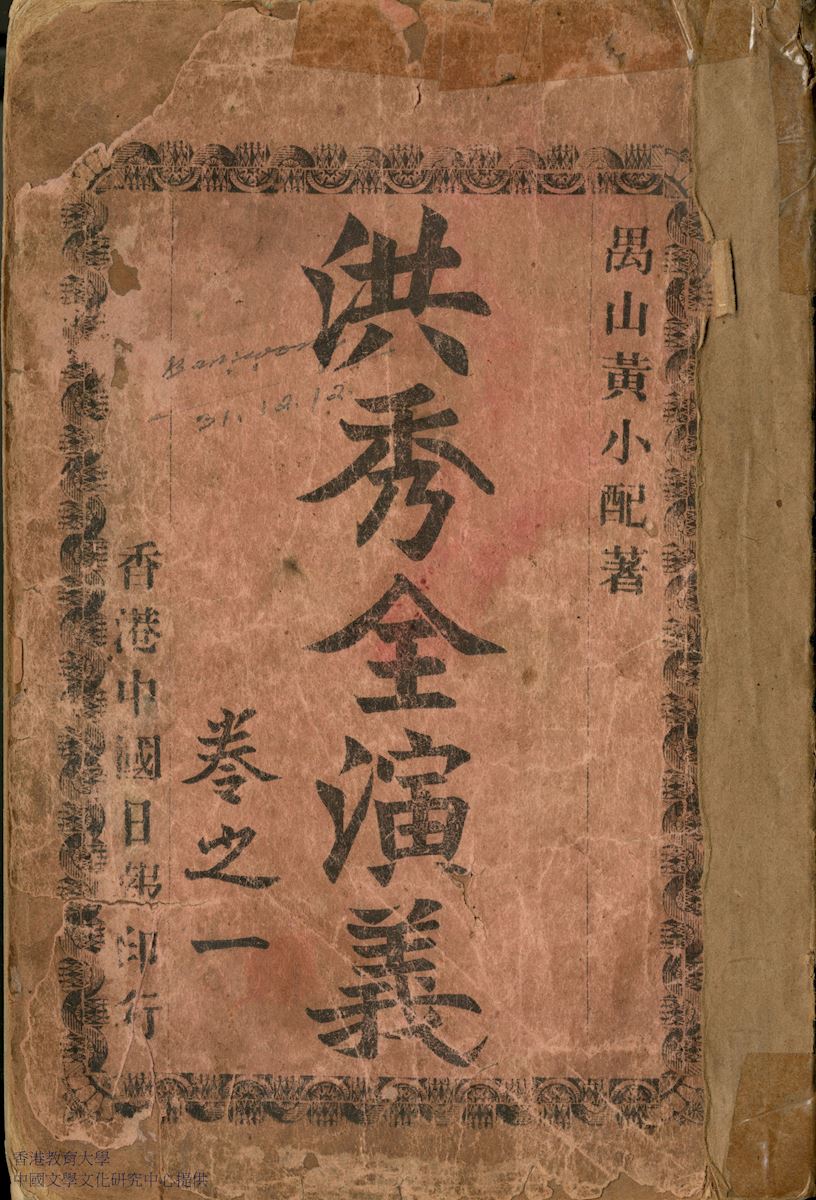
▲ Yu Shan Huang Xiao Pei's Hong Xiu Quan Biography
▲“Autumn Chants on the Terrace of the Song Kings” edited by Su Zedong / Collectanea of Modern Chinese Historical Materials / Taipei: Wen Hai Press
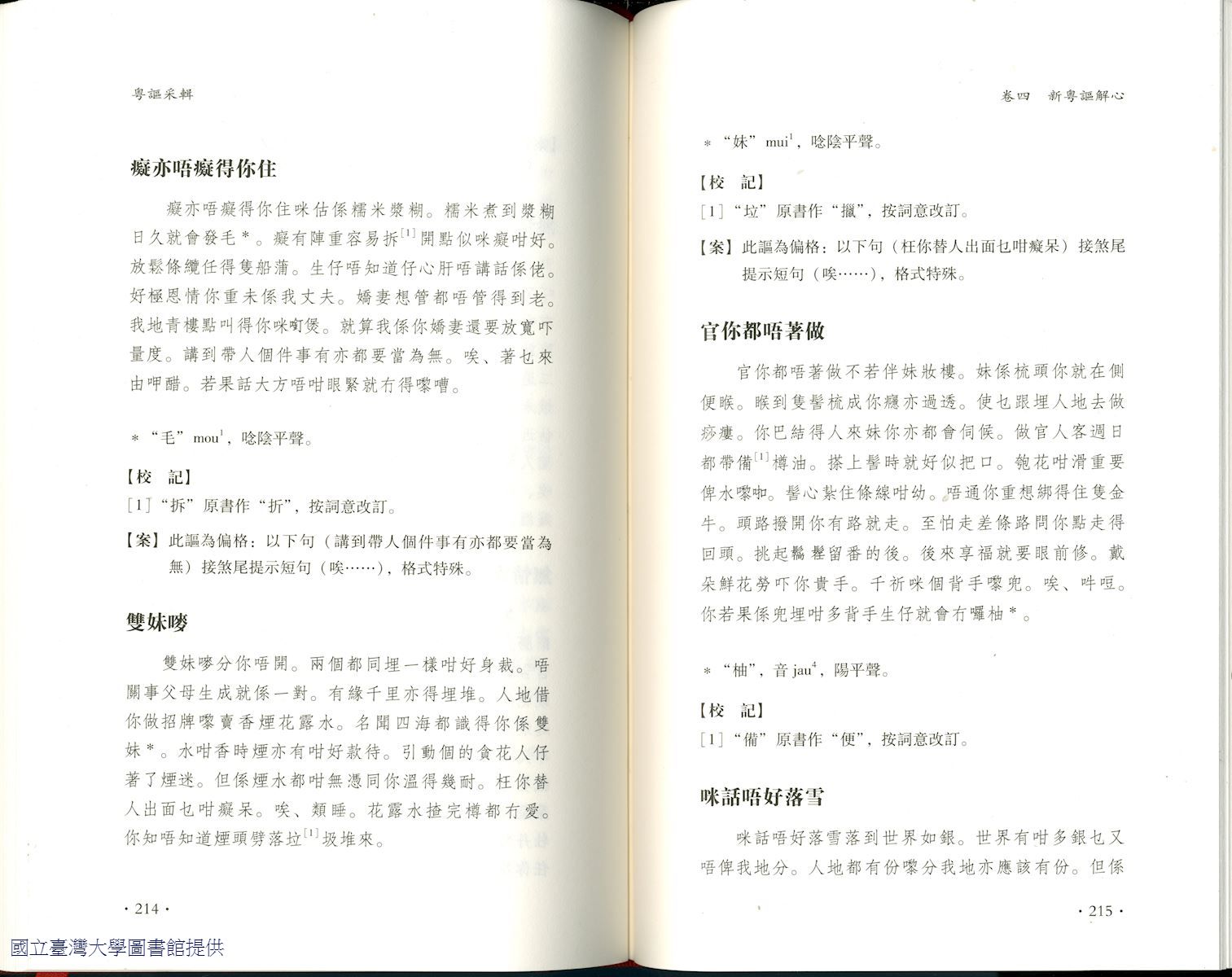
▲ Zhu Hai Meng Yu Sheng “New Cantonese Love Songs” / “Cantonese Songs Collection” / Guangdong: People's Publishing House
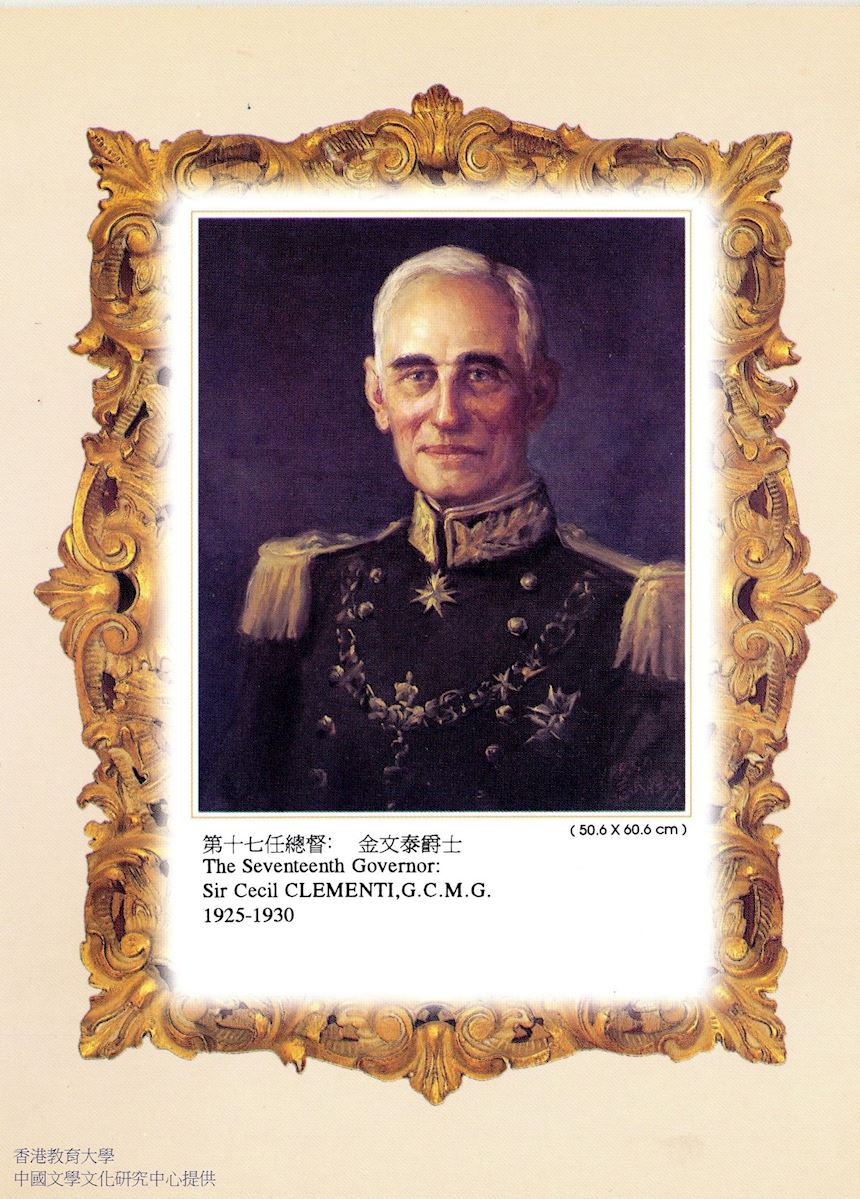
▲ Portrait of Governor Cecil Clementi / painted by Huang Zhi-Ming, Shao Long-Hai, “Hong Kong Governors from the First to the Last: Oil Painting Portraits” postcard collection
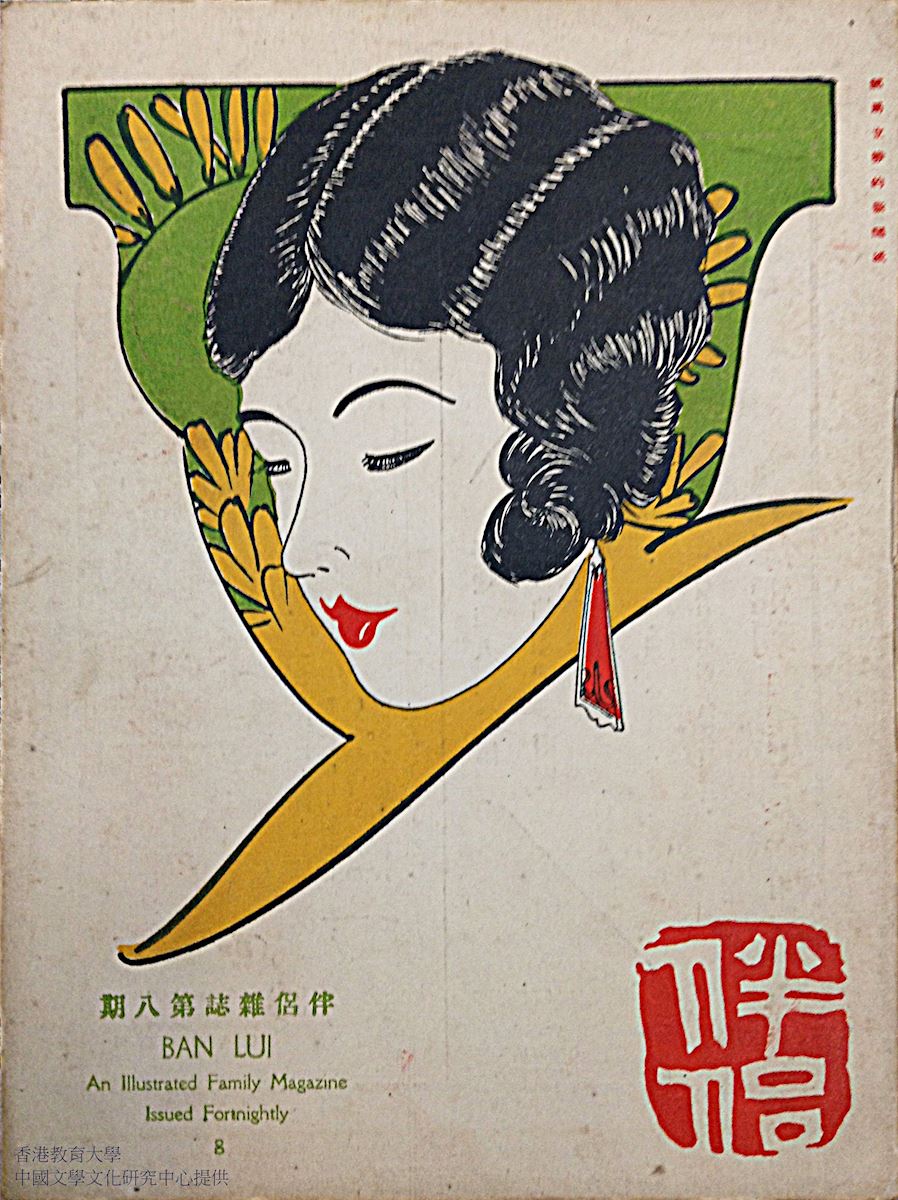
▲ “Companion Magazine” Issue 8 (Facsimile) / January 1929
.jpg)
▲ “Red Bean” Volume 3, Issue 2 / July 1935
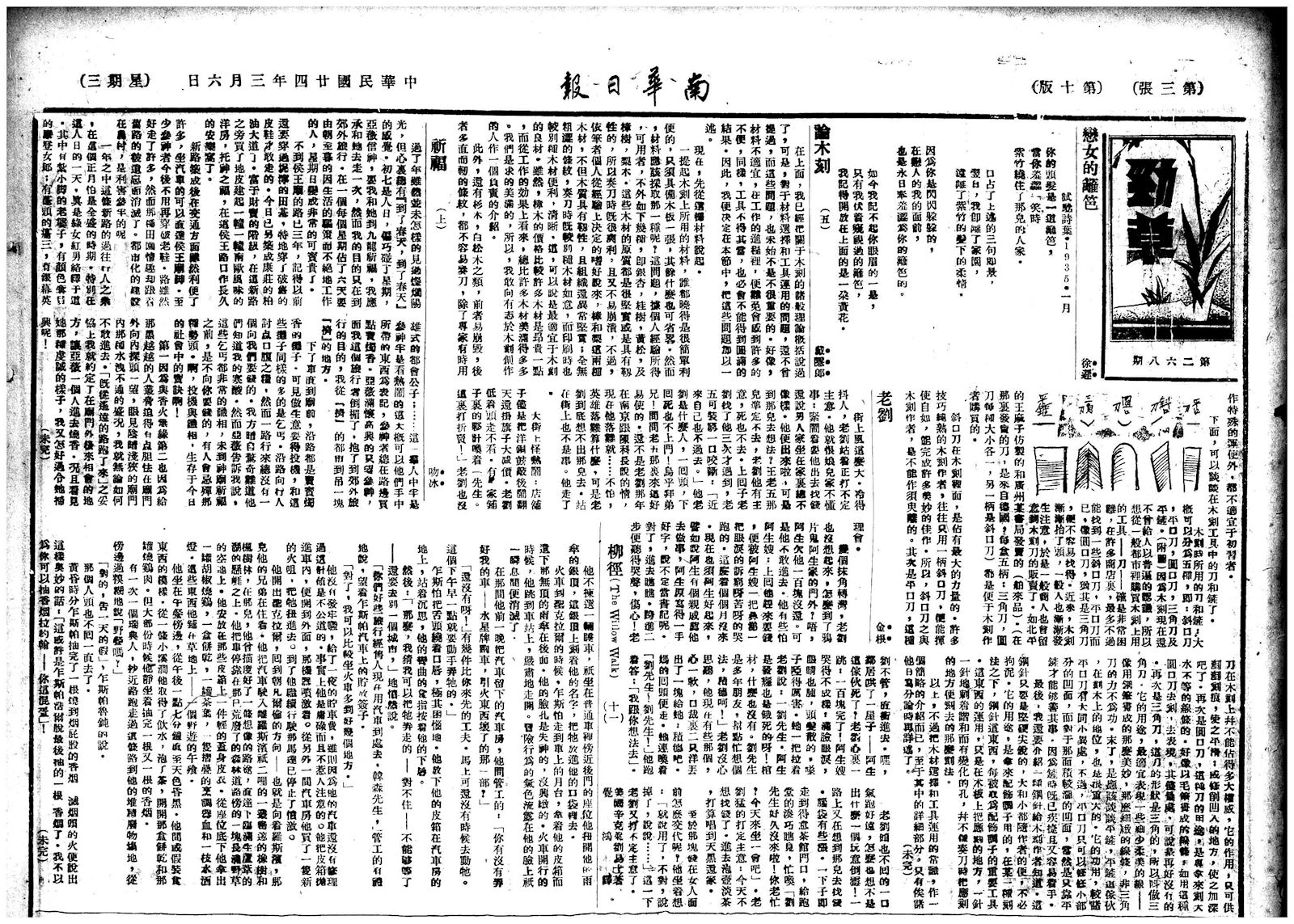
▲ “South China Daily” “Jin Cao” (Facsimile) / March 6, 1935
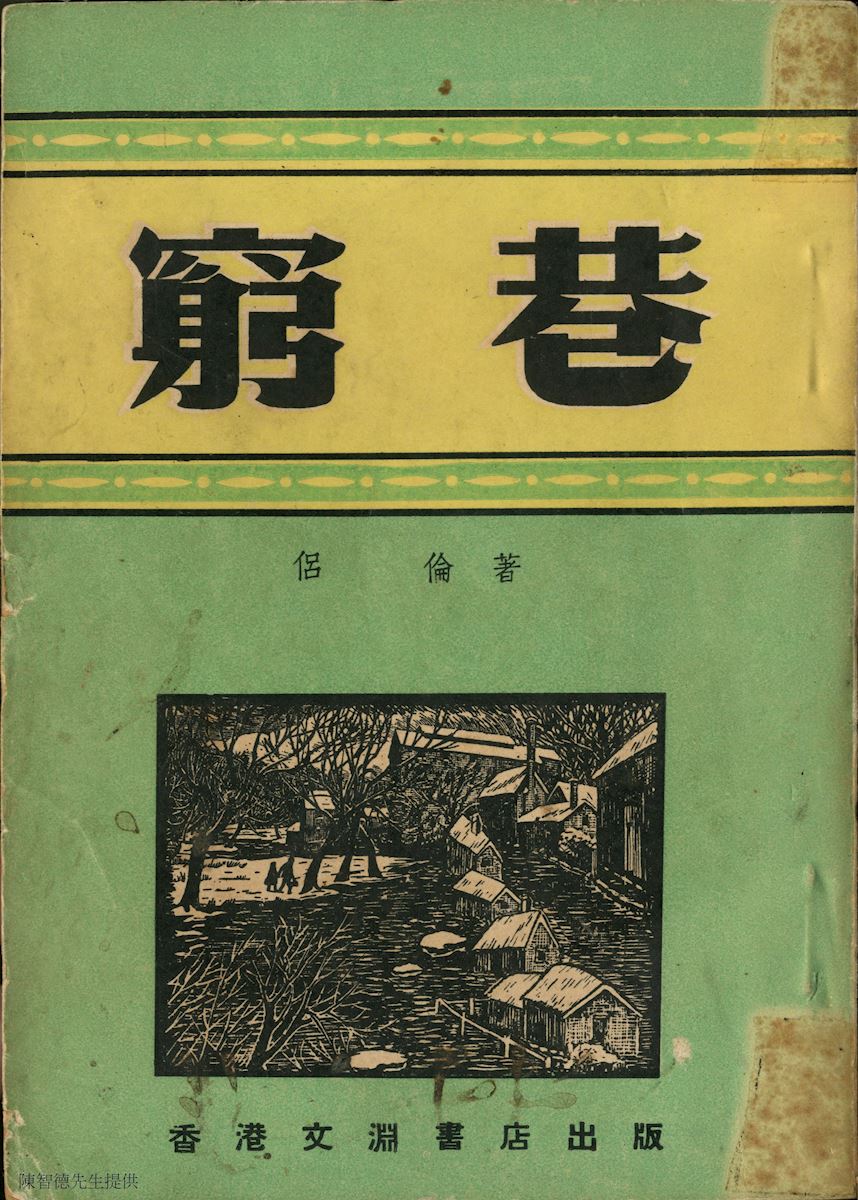
▲ Lü Lun's Poor Alley
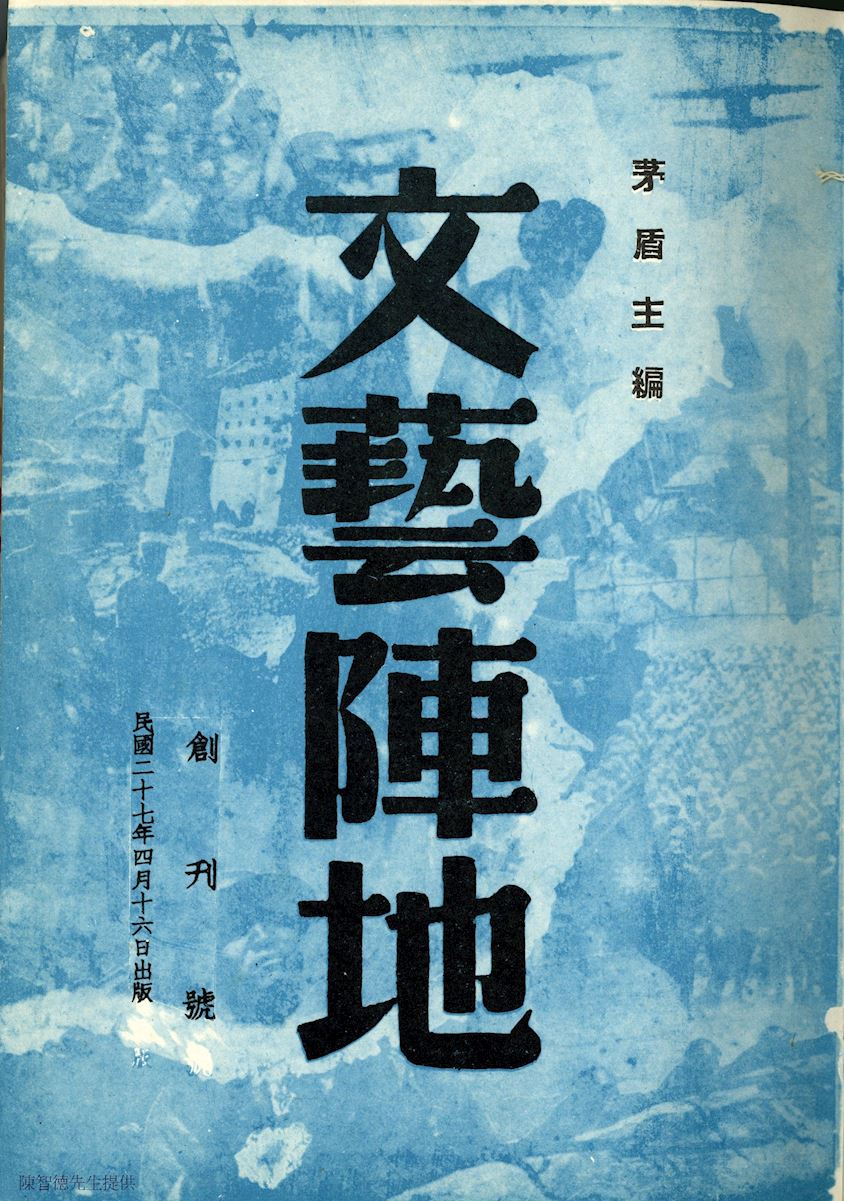
▲ “Literary Position” Bound Edition Volume 1 (Facsimile)
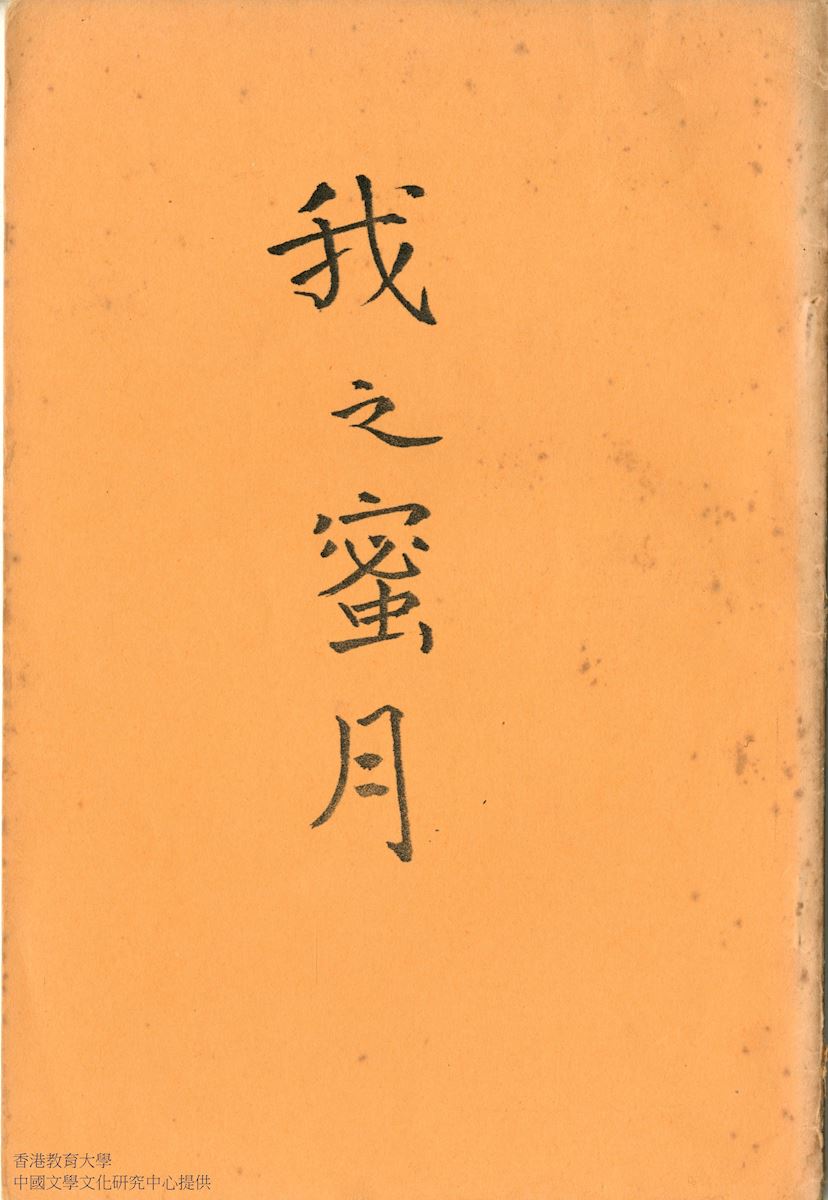
▲ Huang Tian-Shi “My Honeymoon” (Facsimile) / Guangzhou: Far East Publication /1923
Important moments of Hong Kong literature
1874
February, Wang Tao founded the Universal Circulating Herald, the first Chinese-funded Chinese language newspaper, which indirectly led to the birth of Hong Kong literature.
1925
June to October, Canton–Hong Kong strike broke out. November, Governor Sir Cecil Clementi assumed office. During his term of office, he actively promoted classical Chinese literature, and assisted the University of Hong Kong in establishing the Department of Chinese.
1927
February, Lu Xun delivered a speech in Hong Kong, which was reputed to be the catalyst for the beginning of Hong Kong's modern literature. August, Partner magazine was founded, and was known as "The first swallow of Hong Kong's modern literary world". The Island Club (島上社), Hong Kong's first modern literary group, founded Steel Bike and On the Island, which provided an important publishing platform for modern literature.
1937
July, after the Lugou Bridge Incident, cultural organizations and institutions moved to Hong Kong. Colonial Hong Kong became a base for cultural resistance, as evidenced by the setup of a branch of All-China Resistance Association of Writers and Artists in Hong Kong.
1941
December, Japan occupied Hong Kong, marking the beginning of the Japanese Occupation of Hong Kong.
1945
August, Japan declared its defeat in World War II and surrendered. Hong Kong was restored.
1947
Started Dialect Literature Movement, which ended in 1949. 1949 China's regime changed and a large number of migrants flocked to Hong Kong, including many literati.
Stories of Hong Kong Literature
Q:Hong Kong director, Ann Hui, won the Best Director Award in 2014 Golden Horse Awards. Do you know which early Republican China writer, this award-winning movie, The Golden Era, tells of?
A:
The script, costume and scene props of Hong Kong director Ann Hui's award-winning movie, The Golden Era, were painstakingly written and selected. This exquisite movie narrates the story of an important female writer, Xiao Hong (1911-1942), during the early period of the Republic of China.
Born in Heilongjiang Province, Xiao Hong started her journey of hardship in the 1930s, traveling to Harbin, Qiaodao, Shanghai, Wuhan, Chongqing, and finally to Hong Kong. From September to December 1940, the novel, Tales of Hulan River, was serialized on the supplement of Sing Tao Daily, "Horoscope". She then successively published Ma Bole, March in the Town, etc., in Hong Kong. Due to illness and the occupation of Hong Kong by the Japanese army, Xiao Hong transferred between various hospitals, and died from illness on January 22, 1942, ending her short and legendary life.
Though she stayed in Hong Kong for only two years, Xiao Hong's most important work, Tales of Hulan River, was completed here. The golden era of Xiao Hong's life was not in Hong Kong, but she left the golden era of literature to Hong Kong.
Q:Hong Kong in Love in a Fallen City is a legendary land under the pen of its writer, Eileen Chang. Do you know how long Eileen Chang lived in Hong Kong, and that she actually graduated from the University of Hong Kong more than a decade after her enrollment?
A:
Eileen Chang visited Hong Kong three times; the first was in 1939, when she enrolled in The Faculty of Arts of the University of Hong Kong. Her studies were interrupted when the Japanese army occupied Hong Kong. After returning to Shanghai, Eileen Chang successively published several novels, such as Aloewood Ashes: The First Incense Brazier, Love in a Fallen City, The Golden Cangue, etc., which made her rise to fame.
Eileen Chang once again returned to Hong Kong in 1952 to finish her studies. Later, she worked in the US Information Services Department in Hong Kong, where she wrote scripts and translated foreign novels. She also published two full-length novels, The Rice Sprout Song and Naked Earth, which were considered representative works of anti-communist literature at that time. After settling in the United States, Chang visited Hong Kong and Taiwan in 1961 to seek opportunities; it was her third encounter with Hong Kong, and her only visit to Taiwan.
The experience in Hong Kong deeply affected Eileen Chang's life and her works. The bustling city, snobbish people and turbulent times were inspirations for her works. Hong Kong is a legendary land under the pen of Eileen Chang, and her experience in Hong Kong had also given her a legendary life.
Q:Which period was known as the period of Hong Kong's new literature explosion, where many new generation writers and a massive number of literary magazines appeared suddenly, influencing places as far as Shanghai, Guangzhou and Nanyang?
A:
"Explosion" is not only shocking and damaging, but also signifies breaking through stagnant situations and creating new styles. Ten years of Hong Kong's modern literature explosion from 1928 to 1937 saw the emergence of large number of literary magazines such as Partner (1928), Book Basket (1928), Steel Bike (1929), On the Island (1930), Current (1931), The World Pictorial (1931), White Cat Modern Literature Collection (1931), New Life (1932), Colorful Selection (1932), Morning Light (1932), Coffee House (1932), Small Gear Wheel (1933), Spring Thunder Bimonthly (1933), Red Bean (1933), Poetry Page (1934), Poem of the Day (1934), Landscape of Time (1935), Literary and Arts Exchange (1935), South Wind (1937); and cultivated a new generation of young writers such as Lau Fo-Zi, Lei Juk-Zung, Lei Sam-Joek, Lü Lun, Ze San-Gwong, Zoeng Man-Bing (Mong-wan), Sam Coek-Wan (Ping-Ho), Dou Gaak-Ling (Can Ting), Daai Jan-Long, Zoeng Gung, Lou Hang, Ji Ceon-Nin and Wong Guk-Lau.
The movement of writers in turn influenced the literary development in Shanghai, Guangzhou and even various places in Nanyang. Although such an explosion is infinitely good, do take care of your own safety and that of people around you in order to enjoy the fruits of the explosion.
Q:Poet Tai Van-chou who studied in France was famous for his poem, "A Lane in the Rain". He is an important driving force in the poetry world of China and even Hong Kong. Tai Van-chou was jailed in Hong Kong Central by the Japanese soldiers in 1942, and wrote a poem amid the torture...
A:
Hong Kong fell into the hands of the enemy on Christmas night in 1941. Tai Van-chou did not evacuate with the other literary workers, and was taken into custody by the Japanese soldiers in the Central's Victoria Prison in spring of the following year for promoting anti-Japanese sentiment. However, after the war, he was reported to have surrendered to the enemy. He wrote a letter in 1946, stating that though he was taken into custody by the Japanese soldiers for seven weeks, and was "beaten, starved and tortured", he "did not betray a single person."
Based on various current records, Tai Van-chou joined Yeh Ling-feng's magazine as a column writer after his release from prison, and was also the chief editor of the literary section of a paper. While making a living from literary work, he still refused Japanese coaxing, including refusing to participate in the Greater East Asia Writers' Conference and Hong Kong Cultural Club.
However, he was involved in the political fight of left-wing intellectuals after the war, and until his death from illness in 1950, he did not manage to remove the suspicion of surrendering to the enemy. Today, we still remember "Written on the Prison Wall" that he wrote in prison or after his release: "One of you died/in the prison of Japanese-occupied land/The deep hatred that he carries, should always be remembered. //When you return to unearth/his battered body, /with your cries of victory/raise his soul up high"

